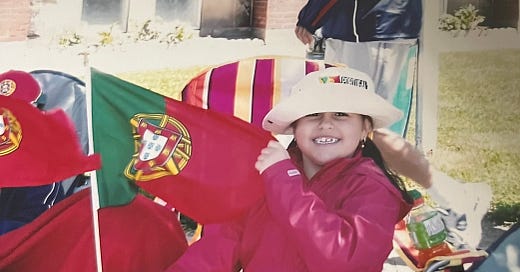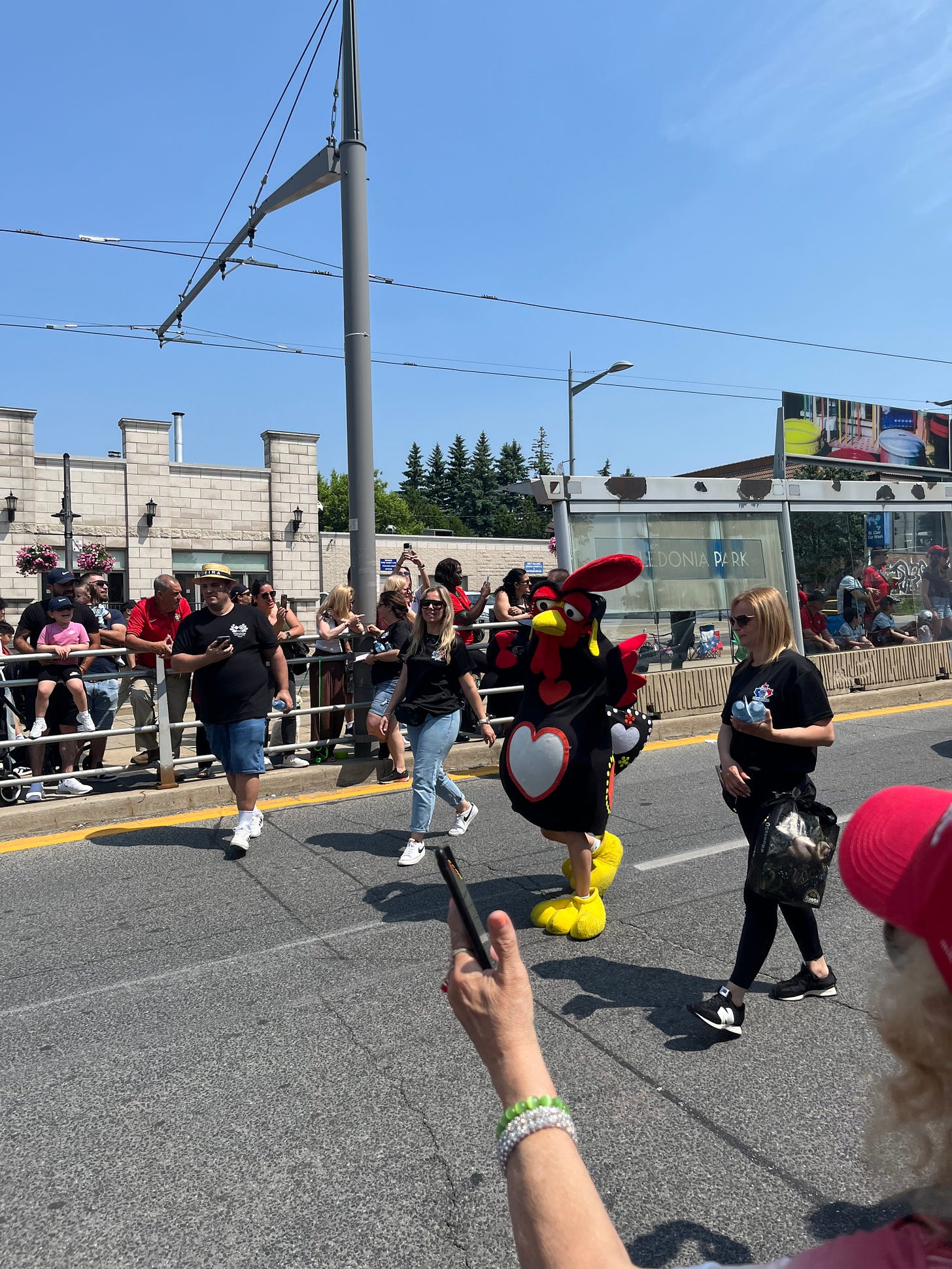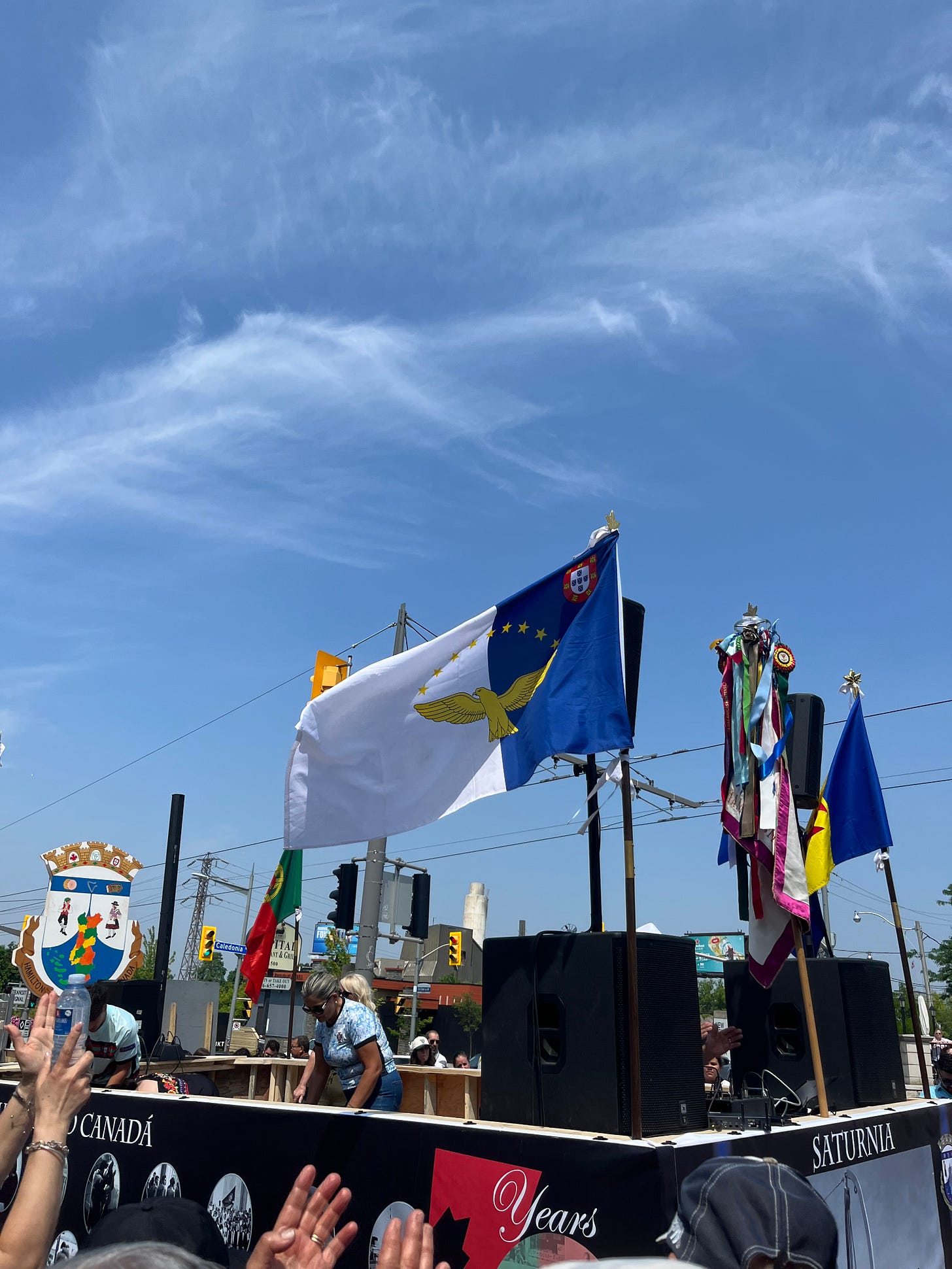Every June 10th I see people refer to Portugal Day as “Portugal’s Birthday”, posts wishing the entire country a happy birthday, but it’s technically not a birthday celebration. It’s a death anniversary! Leave it up to the Portuguese to make their national day a day commemorating the death of one of their most famous literary figures. Dia de Portugal can also be called Dia de Camões, to honour Luis de Camões, the winking poet that is often referred to as Portugal’s Shakespeare. Camões wrote plenty of pieces during his life, but the most famous is Os Lusíadas, an epic that explores Portugal’s history of exploration and “discovery”. You can understand then why the Estado Novo regime used Camões as a national symbol to romanticize Portugal’s colonial history and push their nationalist purposes. Thankfully, that changed after the Carnation Revolution of 1974.
After the revolution, Portugal Day kind of changed its focus to really celebrate Portugal’s future, as well as celebrate its vast diaspora (it’s even referred to as Dia das Comunidades Portuguesas). The diaspora is what I know. I was not born in Portugal, I was not raised in Portugal, and the one Portugal Day I spent in Portugal felt like a regular day in Porto. In Canada, (where our House of Commons passed Bill M-126, declaring June as Portuguese Heritage Month), there are plenty of Portuguese people, which means plenty of Portugal Day celebrations. Toronto hosts an annual parade for it, where the streets are lined with people in their Portugal jerseys (lots of 7s), flags wave, and celebrations are had. I went to the parade when I was younger, but I haven’t been in years, so this year I went to see how the Portugal Day festivities have changed and if my feelings have changed at all too.
The parade this year changed its route from Dundas to St. Clair, and with that change came some confusion on which side of the road the parade floats would go down. It was hot and sunny, but that didn’t stop the street from being full of people. Older people sat on lawn chairs, little kids ran around, babies had fallen asleep in their strollers. The community had shown up to see bits of their culture showcased for four hours in between streetcar rails. There were plenty of folclórico groups dancing, as well as a galo de Barcelos mascot.
Bikers, a Sporting fan club, a Benfica fan club, barefoot women from Nazaré with their seven skirts. It was really nice to see, but what I felt leaving the parade was this weird sense of dread mixed with pride? Was it fear mixed with joy? Was it disappointment mixed with gratitude? I don’t know exactly what it was, but it came from seeing so many people really deeply connected to their culture and feeling like I was behind? Hearing young girls my age speaking perfect mainland Portuguese, hearing little kids speaking better Portuguese than me, a woman asking me a question in Portuguese and apologizing then switching to English because I hesitated (give me a chance!!!). It felt like I had just passed the threshold of being a bit too Canadian and not very Portuguese. But seeing all of that culture at the parade, I felt it in my heart, I love it all so much that I don’t want to miss a second of it, I don’t want to lose it. So, I guess the fear stems from this question of how to sustain my connection to this place, to these people, to this culture. How do I keep it going throughout my life, how do I pass on my awful Portuguese to my kids (if they ever exist), how do I stay connected once my grandparents and parents are gone? How do I go back to Portugal and try to explain (or justify) that I too, am one of them? I don’t really know if I have all the answers yet, but I have a feeling that they’ll be in the language, and the food, and the music, and the people. So I’ll start there.







Love it! 💜
Love this!!!!
Love your writing too, so beautiful!!
Beautiful pictures ❤️🇵🇹❤️